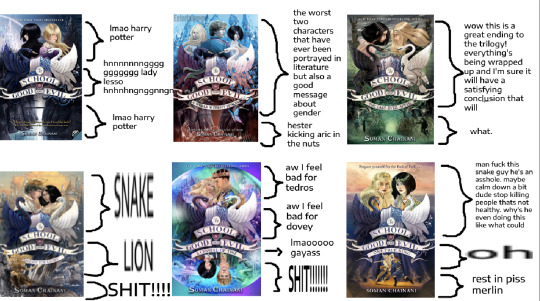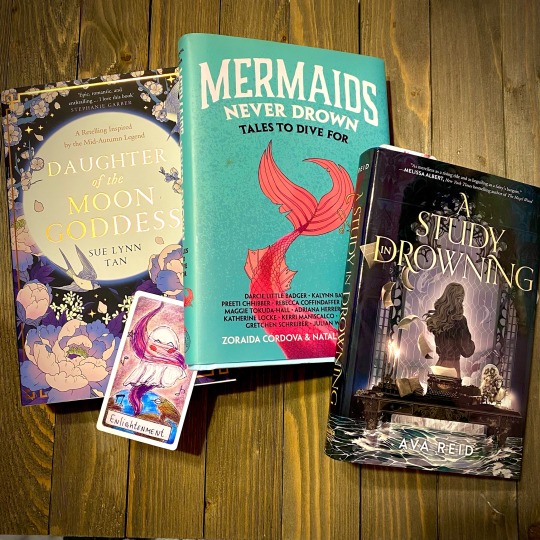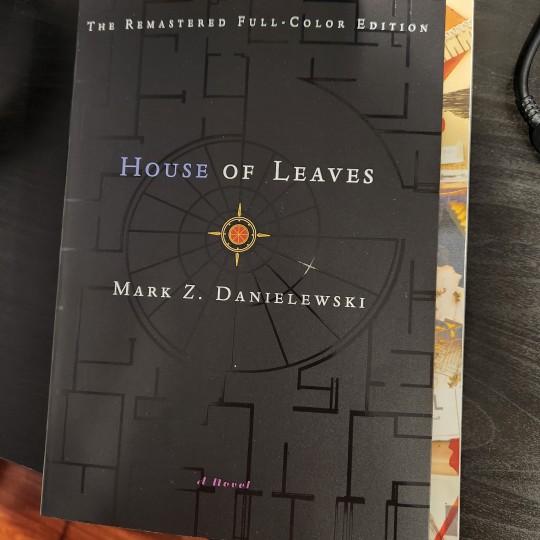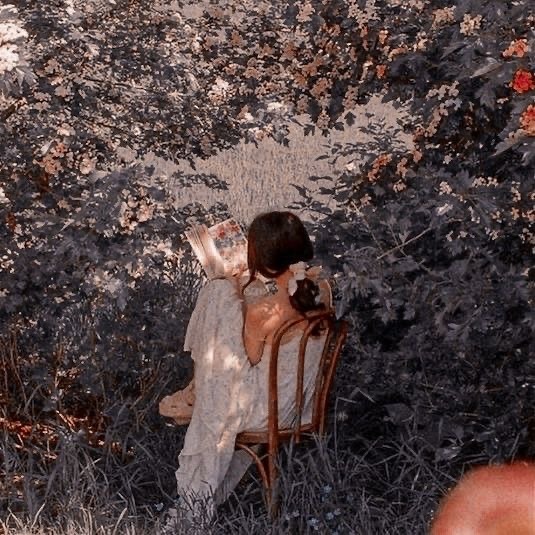#name the book challenge
Text
Name that one book that had such a twist that made you want to lower the book, drink some water, maybe run a bit or do some meditation, pretend you're the mc and handle the twist in your own way in your head and then take the book again cause your imagination led you to a point where you rather kill your own character
#books & libraries#plot hook#plot point#booktok#name the book challenge#plot twist#this is just really exciting#im reading the kiss quotient now btw
0 notes
Text

anyway for all you nerds and losers heres my handy tool for explaining this godforsaken series. have just realised that Hester kicking Aric in the nuts happens in book 3 but ignore that
#tsfgae#the school for good and evil#sge#guess my favourite book challenge (impossible)#if anyone can name me the one (1) specific chapter referenced in this ill email you 5p (I won't)#ill do rise and fall later not cause I forgot or anything
71 notes
·
View notes
Text

Mr. Patrick Augustine Harper, horse trader and gentleman.
#em draws stuff#em is posting about sharpe#sharpe#patrick harper#SEE HIM LOOK AT HIM#writing this post while tired so. simply be looking at his cool purple coat and his cool gloves. Guyladfellow.#did not feel like drawing a whole horse so he Does get a hitching-post to stand with for the Symbolisms.#I remain obsessed with his book-canon middle name... splendiferous...#and also I am always so very pleased by the fact that he has what's pretty much a happy ending#(and I think the happiest ending that any of the chosen men get!)#living with ramona in ireland and doing dubiously legal Business :) (if anything happens to him in peril or challenge Do Not Tell Me)#(I Am Ignoring Those Two They Are Not Real To Me. Thanks muchly!)
43 notes
·
View notes
Text

What's in a Name Stack: Titles that feature the name of the main character ~
#bookstack#stack challenge#oona out of order#lore#dear emmie blue#goodbye lark lovejoy#revelle#ever alice#evvie drake starts over#a girl names anna#bookblr#booklr#bookish#books#reading
21 notes
·
View notes
Text

two out of four for the randomized design challenge. I'm realizing now that this would have been more fun as like...a cute little speedpaint. But eh, I'll keep that in mind for the next character set.
#so no hetalia?#randomized design challenge#her name's Alexandria#which is such a mouthful of a name bc I had to stick with that one stupid convention I established for Bailey#But I thought it was cute bc library of Alexandria and she's an academic#hehe books#She's one of my favs so far#her and the next girl I REALLY like how they turned out#character design
19 notes
·
View notes
Text
I have almost absolute aphantasia (can't see pictures in my head) so descriptive passages just wash right over me with very little impact. I can't picture what's being described, so I mostly just glaze over them.
Which also means I'm bad at *writing* descriptions. Not crucial, for a fanfic writer, but a tool that would be nice to have. But seeing people pick apart LMM's descriptions is making me realize how much heavy lifting the act of naming colors is doing.
I can't tell you what the mountains look like, but I can tell you that they're covered in dusty green forests and fawn-colored clearings, standing starkly against bright blue sky, and let your imagination do the rest.
28 notes
·
View notes
Note
rand / "selene", prompt: breakup
[Send me a character or pairing, and a one word prompt, and I'll write you a drabble!]
Lanfear felt at her throat as she stepped out into the night, divided between amusement and annoyance. It had been a long time since she had taken a wounded that required the Great Lord’s intersession. It always irked her a little, needing the aid of someone else, even the Great Lord. Yet she knew, deep down, the day would one day come when it was no longer necessary. When she would stand entirely upon her own power, her own gifts.
Her’s and Lews Therin’s.
She felt a cold smile twist her lips as she watched the little so called Aes Sedai flee with Lews Therin into the night. For a moment she considered simply striking with Balefire, but no. No need to ruin all her careful spadework with Lews so far. This could be set rights still, if she was careful and clever and patient.
She had been patient a very very long time already. Three thousand years and more, waiting for the chance to reclaim what had been stolen from her. She could wait a little longer now, especially knowing how close he was to yielding to her, at last and forever.
“One final parting. One final break, and then you are mine forever, Lews Therin.” Lanfear whispered. “As it should have always been. As it always will be.”
She was the Daughter of the Night, and he was the Prince of the Morning. They where destined to never be broken apart.
#WoT#Wheel of Time#Wot Book Spoilers#TGH Spoilers#Lanfear#Rand al'Thor#Randfear#I am still tickled that's their new ship name#Selene#WoT Fanfic#No Beta We Die like Uno#drabble challenge
24 notes
·
View notes
Text

Tarotoctoberbpc day 15
Enlightenment (judgement) - currently reading
Two buddy read books and a book of short stories
I’m about to be behind on both buddy read books 😅🤷♀️
#I don’t think i got the right name for this card 😅#book photo challenge#tarotoctoberbpc#day 15#currently reading
36 notes
·
View notes
Text

A successor to this post, with the villains this time. Drew was originally supposed to be on here as well, but he felt bland and so the decision was made to axe him.
#Art#magisterium#constantine madden#anastasia tarquin#Eliza madden#master joseph#alex strike#Fun fact time!#multiple parts of these drawings are traced photos of me#And these were not sequentially drawn with the previous ones#Constantine actually came first#Also Joey is a Sicilian because it’s fucking hilarious#Bbeg is a pipsqueak Italian#Also walther is an incredibly stupid name#And finally#Challenge to see if anyone can tell me what’s funny about the book
23 notes
·
View notes
Text
Her True Name
A Retelling of "That Dear Name," a Russian folk tale. Written for the @inklings-challenge Four Loves Fairytale event.
Note: I’m retelling this story based on the version by Pavel Bazhov in his beautiful book The Malachite Casket, which I happened to pick up at a used bookstore a few years ago. Unfortunately, I can’t find that or any other version anywhere online (it’s apparently way more obscure than I realized??), but the Wikipedia page for the original tale is here.
-
This is a fairy-tale, but it did not happen once upon a time. This fairy-tale happened in 1586.
It happened four years after Yermak Timofeyevich and his five-hundred-forty Cossacks rode against Kuchum Khan and the Six Tatar Princes in 1582 and turned their bones to water on the banks of the Irtysh River.
It happened two years after Yermak drowned in a different river, pulled down by the silver shirt of chain-mail that Tsar Ivan had given him as a gift. The Tatar Princes divided his armor up, it is said, but his body they buried with due honor. That was in 1584.
Two years after the Cossacks were left without their great leader, this fairy-tale happened. It began in Siberia in 1586. It is still happening today.
In those days, in a high and lonesome place in the Ural Mountains, there was a village whose streets were paved with gold. To the heroine of this tale, whom we will call Lidik, this never seemed extraordinary in the slightest
Lidik’s people were neither Russian nor Tatar nor Vogul nor Ostyak nor any other group that you may have heard of; they were an Old People who had lived in isolation for a thousand years, so that they neither knew nor cared about the world beyond their village.
Yet this land on which this Old People lived was the kind of place in which people often find gold. Flecks of gold were scattered through the sand of the streets. Larger nuggets laid about like ordinary stones: the men hunted with lumps of gold in their slingshots and the women pounded the washing against gold-veined rocks by the river. Children played with golden baubles and no one thought anything of it. Try to imagine what Lidik’s world was like: to her, gold seemed as common as steel is to you and me.
High in the Urals, these people lived and worked not in wooden buildings but in caves that their ancestors must have dug out of the rock. The largest of these was beneath Azov Hill: so large it was that even when lit with a hundred torches, a man standing at the entrance could not see full to the back. In the old days, the village would gather there for meetings and dances, weddings and funerals.
Now, the cave beneath Azov Hill is full of secret things. These secrets, and Lidik’s role in them, are the subject of this fairy-tale.
Lidik was the second child and the first daughter of the chief elder. Brave she was, and resolute; yet she was also kind and vivacious. She sang like a bird, and she laughed and wept with equal vigor. In the year in which our story takes place, Lidik played with the village children and sang round the cookfire with the other women. At festivals, she was the first to leap to her feet for a dance, and then all the young men of the village would line up to be her partner, and the old women would shake their heads and say, “Ah, to be young again.”
The Old People loved Lidik very much.
In those days, the world was growing smaller and people began coming to this remote village in the Urals from distant lands. First, the Tatars rode by on new trade routes, but they took little note of the village and did not linger. No, it was not until the Cossacks came that the trouble really began. Without knowing it, Lidik’s village had been annexed by Russia and now the Cossacks had come to tell them.
These Cossacks were not evil men; I want that understood. There are no evil sorcerers or black knights in this fairy-tale. No, these were men who had once lived free in a land of their own, the same as our villagers. Yet they had sold themselves into the service of the Tsar and were under his orders to tame the Siberian wastes. Once Yermak Timofeyevich was drowned in his silver shirt, his soldiers did as they liked for themselves.
As I have said, the Old People hunted with slingshots, but the Cossacks had muskets. When a scout returned to camp with reports of a village whose streets were paved with gold, greed bloomed in the Cossacks’ hearts and at once they decided that they would ride against the Old People, put them to death, and carry away all their gold.
Yet the Cossacks were not all of like mind. As plans were being drawn up for the attack on the village, one man – a lad called Stepan Vasilyevich —heard what they were planning and his heart recoiled against it. Stepan hated what had become of the Cossacks in Siberia since Yermack’s death (in the river, weighed down by the Tsar’s gift). What's more, Stepan Vasileyevich loved the Old People, though he had never met them. Thus, he made up his mind to go to his commanders in protest, though he feared they would not heed him.
“Have you no shame?” Stepan asked with a heavy heart. “Before, we attacked other soldiers who had weapons and fortifications. Then, we stripped merchants of their wares unprovoked. Now you mean to rob these folks of their last and put them to death for it? I say again, we are soldiers, not bandits. These people have not harmed us and may not even know of us; let us leave them in peace.”
Yet Stepan’s fears proved true: the other men heeded him not. Instead, one of them stabbed him in the belly with his saber and they left him in the forest to die.
But the wound they gave him was a seeping wound, not a bleeding wound, and so Stepan did not die quickly. Instead, he staggered deeper into the wood in the hope of reaching the village of the gold streets. He knew the way the Cossacks meant to take and he followed it. “For,” he reasoned, “if I can find these people before I die, perhaps I can warn them of the attack.”
Here, at last, the maid Lidik enters our tale.
She was fond of walking the tree line as evening fell, you see. Even in winter when all was dark, she would stroll along the place where forest met stone after supper, singing softly to herself and nodding to any friend she happened to pass. One night, she was doing just this when she heard a noise in the distance. It was like the cry of a man’s voice, and in Lidik’s heart it stirred curiosity and compassion in equal measure. She ventured into the forest to find the source of the sound.
There, tangled in the underbrush, she saw the form of a strange man (who we know to be Stepan) lying where he had fallen when he at last could go no further. He was half-conscious and bloodied, but he cried out again and again though his eyes were closed. He was dressed in clothing that seemed to come out of another world and he bore weapons that Lidik did not recognize. Instinctively, she drew back in fright.
But Lidik was brave and her compassion won out. Moments later, she bent and inspected the man till she found his wound. She bound it with cloth from her garment, carried him to her father’s cave, and there began to tend him.
All the while, the strange man went on crying out, but because she could not speak his language, Lidik did not know what he was saying. She thought his words must be exclamations of pain.
In fact, Stepan was warning her of the coming attack with his every breath. Yet after a time, his breaths ran out and he lapsed into sleep.
When he woke, Stepan found himself surrounded by strange people, and the woman who had found him the evening before was among them. A man – who seemed to be the woman’s father– spoke an unfamiliar language, and Stepan could not understand him.
Yet as it happened, Stepan knew Tatar and some of the Old People, who remembered when the traders had ridden past, knew a small bit as well. Thus, in snatches of Tatar and with gestures to fill in the gaps, Stepan issued his warning.
The chief elder thought for a long time before replying. “The mountains – too treacherous – winter,” he said. “Men survive—children perish. We remain.”
“My people do not know I am here. You attack from your caves when they come–turn them back for a while,” Stepan managed to say. “Soon it will grow colder.”
As her father and brother went to confer with the elders, Lidik remained by the strange man’s side as though bound to him. For three days, she sat at his bedside and fed him meat, honey, and vegetables. As she tended to his wound, she often sang softly in her own tongue. In broken Tatar, she whispered “thank you” again and again. “Thank you. Thank you for coming here. Thank you.” Lidik loved her people very much, you see.
Meanwhile, the Old People set a rotating lookout atop Azov Hill. Day and night, they watched the woods with vigilance, prepared to light a beacon fire if any disturbance came from the forest.
As they spent their days together, Lidik and her stranger slowly began to speak. Their talk was some Russian, some Tatar, some the tongue of the Old People, a little Balachka, and much laughter. They bandied words back and forth in four languages and made up the deficit with gestures and looks and more than a little patience.
"I come from a place by the sea— a great body of water, yes?” Stepan said Russian. “A long journey south and west of here. My people are called Cossacks. Free men.” He gestured to himself, then west towards the setting sun.
Lidik repeated his words in Russian. "You are Stepan. You come from the sea. You are Cossack. From south and west.” Then, in the Old Tongue, she added, "It must be very far south, I think. You look like a man who sees a great deal of sun."
In the Old Tongue, Stepan replied, "Home is many weeks away by horse. It is very beautiful."
Then, because she still had not told him, he asked, “What is your name, lady?”
After a long pause, she replied in the Old Tongue. “You may call me Lidik, though it is not my name.”
Puzzled, Stepan repeated the question in Tatar. “Do you know what I mean, ‘name’?”
“It is how you are truly known, yes? Lidik is what I am called, but it is not my name.”
Are you surprised, Dear Reader?
Among the Old People, names were sacred things. Only Lidik’s father and mother knew her true name. When she married, she would give it to her husband: she would whisper it in his ear after their hands were fastened, or perhaps later she would gasp it to him when they came together. All of this, she explained to Stepan with no small amount of stammering and blushing.
“Only those who gave me life and the one to whom I am joined in the flesh can ever know me truly,” she concluded. “Is it not so with you?”
“No,” said Stepan. "My people shorten the names of those we love. My family called me Stiva. Yet for us, names are not a matter for blushing."
This only made Lidik blush all the more fiercely. "You are a stranger. Ordinarily, I would not need to explain such things."
The attack came at dawn on the fifth day, but the Old People were ready; they ambushed the Cossacks from their caves as the soldiers emerged from the wood. Since it was a dense wood, the Cossacks were not mounted, and the caves proved to be good fortresses. Thus, the Old People managed to turn the Cossacks away with nuggets of gold from their slingshots. Yet they knew that this was only a temporary reprieve.
When the Old People returned victorious from their battle with the Cossacks, they came again to confer with Stepan. Then, with Lidik’s aid, he told them why the Cossacks had come and why they would return.
“All the gold you have—the yellow metal, yellow stone–that is the cause of all this,” said Stepan in Russian, pointing to a gold trinket that sat nearby on his bedside table.
“What of it?” asked Lidik, with an exaggerated shrug for emphasis.
“My people come for it. They will kill you to possess it. They will never let you be.”
Lidik conferred with her father in brief, then mimed giving something to Stepan. “They can have it.”
“No. You must hide it from them. When the winter ends, word will have reached the Tsar that there is gold here and then you will have no life worth living.”
The elders again conferred. “What would you have us do?” Lidik asked in Russian.
“You must take these stones, all these yellow ones, yes and every golden trinket and bauble that you have, and put them out of sight. Cover the flecks in the sand with earth. Then depart for another place. Perhaps, if you do this, your children may someday return to live here.”
And Lidik told her father all that Stepan had said.
So it was that the Old People spent the rest of the winter moving all the gold they could into the cave beneath Azov Hill so that it was all out of sight. They covered their golden streets with black earth from which grass might grow. Then, they made preparations to abandon the village for another place when spring arrived.
All this time, Lidik continued to care for Stepan, but she was not alone in doing so. One of the guards often took it upon himself to carry Stepan to Azov Hill where he could sit with the lookout in the fresh air. "Good for the blood," he would say in faltering Tatar.
A neighbor woman made Stepan a gift of her thickest bearskin blanket. "My son is lame," she told him. "He cannot run. If we had been attacked without warning, my dear boy surely would have died."
The village’s healer looked in every day. She brought herbs and salves and even rich foods from her own larder. Yet for all her ministrations, Stepan’s wound continued to seep.
When at last, the day came for the Old People to leave their village (whose streets were no longer paved with gold), Lidik’s father issued instructions for Stepan to be counted a member of his own household. Stepan only shook his head.
“Death is close to me,” he said in Russian, looking to Lidik to translate. “I will not survive the journey. You must leave me here.”
Lidik turned back to her father. “He says that he is dying and will not leave this place.”
"But for you we may all have died. I will not allow you to be left behind alone. As chief elder, I forbid it."
Yet when she heard this, Lidik did not speak again for a long moment. She knew that Stepan spoke true when he said that he would not survive the journey; she had changed his bandages for more than three months and knew that he had healed very little.
Yet equally, Lidik knew that her father spoke true when he said the Old People would not abandon Stepan to die alone. They loved him too well, and for that they would joyfully waste precious time and resources on a man they could not save. This, she must not allow them to do.
“He will not be alone," Lidik said in the Old Tongue. In Tatar: "I will stay with him." Then finally, she turned back to Stepan and in Balachka, she repeated, "I will stay."
Didn't I tell you that Lidik loved her people? Didn't I say she was brave?
"What do you mean?" demanded her brother. "This man is not your husband. What is he to you that you should leave your people to be with him?"
"He is the man who staggered injured through the forest for love of our people, though he knew us not. I will not forsake him,” Lidik answered.
So it was that when the Old People left their village behind, neither the Cossack Stepan Vasilyevich nor the maid called Lidik was among them.
“Well then,” Stepan finally said once all the Old People were gone. “I still say you ought to have left with your kin—but all the same, I am grateful not to be alone.” Then, in Tatar, he whispered, “thank you.”
Together, Lidik and the dying man retreated into the cave beneath Azov Hill and she laid him among the piles of gold. They were terrible to behold: golden stones and nuggets and all manner of trinkets heaped like coal all throughout the enormous cavern. When the early spring light pierced the darkness, they shone like a thousand little suns.
They waited. Stepan slept a great deal, and when he woke Lidik gave him meals of dried meats and honey. She sang softly, both to comfort her companion and to occupy her own mind. But when at last she heard the sound of horses in the distance, Lidik got up and sealed the door.
Then, as the darkness settled over them, Stepan knew that his hour had come; but he wished to leave Lidik some hope. He did not have the words in any language she would understand to express what he really meant, so this is what he told her:
“Hear me, Lidik. A day will come in this land when there are no more Tsars or soldiers and even their names shall be forgotten. People will come here from all over and they shall not kill or steal, and one of them will call out your name—your true name—from beyond the cavern door. On that day—not before and not after, you understand?—you must go out to him with a brave, merry heart and take him as your husband. And when that day comes, let any man who wishes it take the gold, if they have use for it.”
In the Old Tongue, Lidik answered: “How will this man know my name if I have not given it to him?”
“You and I have loved each other a little, have we not? I warned you of the attack, though it costs me my life; you have stayed with me, though it costs you yours. Yet the man who is your true husband has loved us a hundred times more. He knows your name and mine, dear one. I promise.”
"Then I will do as you ask."
"Good," he said in Balachka. "I pray the wait will not be too long."
With those words, Stepan fell asleep, there in the cave beneath Azov Hill surrounded by piles of gold.
His body cooled, and yet it did not decay. And what’s more, by some magic the woman called Lidik did not die or even age as the years wore on. She remained forever young and vivacious, alive in her cavern of treasure with Stepan's body beside her.
See? I told you this was a fairy-tale.
From that time, no one could enter the cavern beneath Azov Hill, though they tried in every way. Gold is a powerful incentive. Soldiers came with cannons, but the door did not yield to them. They bore into it with shafts and hammers. They tried dynamite and buried charges of black powder. In the ‘60s they fired at it with missiles, but even that was no good. The door holds; no one can gain entrance by force.
Yet there is an even greater hope for laying hold of all that gold, piled like coal in the keeping of a maid who does not age.
Over the centuries, crowds of people have come to stand by Azov Hill. They shout all manner of words. “Azovka!” some cry, “Lapochka!” Others call out every female name they can think of, "Natasha!" "Anna!" “Soo Lin!” "Jenny!" Still others shout gibberish until they lose their minds with it; until they forget what words are and babble only nonsense till they die. Each man hopes to happen upon the lady Lidik’s true name so that she will open the door to him. To this day, none have ever succeeded.
Yet I can assure you that the lady called Lidik lives still. You can hear her singing if ever you come to Azov Hill. When the serfs were freed, some said she sang for joy, and likewise some claim that her songs turned melancholy when the Iron Curtain descended. Others will tell you that her song never changes: grief and hope are blended in her songs, and so it has always been.
That was how it seemed to me on the day I stood before Azov Hill and listened to the sweet voice that seemed to come from the very heart of the mountain itself. I did not try to guess Lidik’s true name; there is only one who can know it. Instead, I simply called to her in my own language. I told her this: “I’m waiting too.”
#as soon as i saw the theme for this challenge i knew i was going to retell this story#it is the most overtly Jesus-y fairytale I've ever read it's unreal#'someday when they world is made right your husband will come and speak your name and then you must go to him'#that's like#that's just the Bible guys#this was like the next-to-last story in the book and it totally shook me to a stop when i finished it#sorry the original is apparently so inaccessible ☹️#this is what happens when you pick up random books at used bookstores#fairy tale: that dear name#theme: agape#story: complete#inklingschallenge#leah stories#pontifications and creations#posting now because darn. what a day. it's time#inklings challenge
60 notes
·
View notes
Text


alright, first book of the year 😼
#i will do a challenge named i have to read this thing even if it kills me#would you kill me with hammers if i told you i only knew abt this thing because of ultrakill#yeag.#anyway it's such a thick book but i have to i must stop melting my brain with my phone#i need words and such in there too
7 notes
·
View notes
Text
name challege
search your name + ‘core’ on pinterest
I was tagged by baby @cherishlalune









I’ll tag @hufflepuffhabs @gavidaily @mischai9 @doinggreat @greyscxle-is-taken @richard-arlison @blaugrana-blues @futbolfanficpunk @erre-con-erre @eldifusor @julianalvarezzz @stamatia25082004 @ephemeral-you @mrplatano @latelyshesbeendressingforrevenge
#name challenge#taniacore sounds awesome#mutuals#and non mutuals i love#lets see it#i need money not boys is a vibe#havent been to nyc in years have to go#books#ocean#vinyl
24 notes
·
View notes
Text
Props to grrm for being realistic and having many characters with the same name I guess but whenever I see a historical or background character with the same name as a more major one I just imagine the same guy but slightly recolored
#.txt#asoiaf#except for those super generic names like jon or jeyne#I mean there’s what at least 4 jons in the main books. and 2 of them are povs#new drawing challenge pick one name and draw every character who has it. pick jon if you want to suffer#there’s 9 joffreys holy shit#grrm really liked that name huh#I really hope they include those two in hotd#just so somebody can be like ‘my favorite character in the got universe is joffrey :)’ and confuse everyone#when asked to elaborate just say ‘oh you know the kid that died at 13 and got slapped by his uncle’#did grrm do that on purpose#I think so lol#do you think they’ll have the balls to not change their names. or are they like dnd who thought people would confuse asha and osha#or maybe just not include them actually idk how important they are#haven’t read f&b just the wiki pages lol#ok im stupid i couldve just checked the cast list lol. the gay one is there apparently epic
108 notes
·
View notes
Text
not someone reblogging my post about the book the haunting of hill house with "yeah! I'm gonna go rewatch that!" when what made me upset in the first place was how much every adaptation of the source has missed the point of it

#read the book I am BEGGING you#it's so good#the only problem is that it will make you want to fire every adaptation into the fucking sun#especially the new one which has literally nothing to do with the book except some names#mike flanagan stop putting the names of historic horror novels on your original work challenge
7 notes
·
View notes
Text
" On earth we're briefly gorgeous" by Ocean Vuong is a work of art, its messy and complicated but beautifully poetic all the way through, i've never gave a book 5 stars so fast, and Ocean's narration of the audiobook is so perfect, my favorite thing is when authors read their own work and you can hear all their emotions they poured into their writing come up off the page
i have so many thoughts and none at all, it was a masterpiece and im so glad i gave it a chance
#on earth we're briefly gorgeous#ocean vuong#weird how my two most favorite books from this reading challenge ive been doing have ocean somewhere in them#either the name or the title And both narrated by the author and snippets of the authors life in character form#so fucking good#moss reads
2 notes
·
View notes
Text
smth smth fawn’s self rivalry in the siblings!au
#gideon shut the hell up challenge#bc we keep randomly thinking abt how Absolutely Devastating the museum is in sibs!au it ofc led to#us thinking abt the heartache of having to see river take up the sidestep name#to have (who you think is) some stranger waltz in and just stake a claim on arguably the single most important thing in your life#(read: the sidestep name bc it’s all you have left of ur brothers)#BUT. then we started thinking abt how they Also take up the sidestep name again#and the agonizing self-loathing and Constant Mourning that they go through every time they commit a crime#bc it’s not just their own hero memory who they are corrupting and bastardizing but Their Brothers’……..#fawn in the sibs!au is literally the equivalent of being so broken and bloodied and still dragging yourself onward#bc what other choice do you have?#ALSO !!!! bc we love to discuss fawn treating destroying the exhibition as a self-inflicted funeral.#knowing that in the sibs!au they probs only intended to remove their own self ?? but spare cyrus and river’s??#except then cyrus goes and blows up the fucking museum !!!!!!#I know for a fact they’re too busy helping w evacuations to actually manage to detour and save any of it too#bc they def would’ve considered it. genuinely inconsolable later when ric talks to them abt it.#bc here’s the thing. it may not have happened in actual book canon but I know in my heart he would sit them down and explain that nothing#of the sidestep exhibit could be recovered. which is fine for Just fawn but when u include the brothers ??? absolutely not#angie also is the one who chases fawn off which makes it even more fun bc they Just run from her they don’t super fight#and genuinely…. idk if they could have right then !!!! I think they’d be way too distracted and shocked to manage it#keeping up with the beckers
2 notes
·
View notes